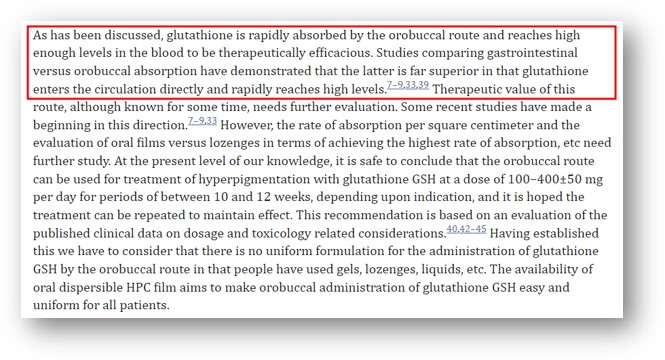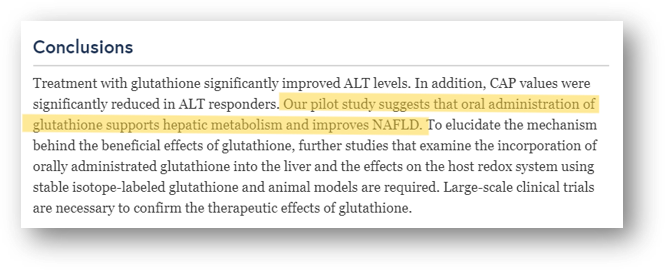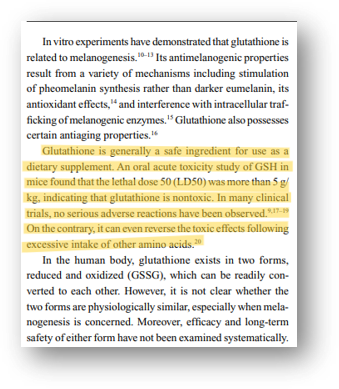
Hello. I'm a pharmacist Jinny.
If I had to pick the most sought-after nutritional supplement these days, it would definitely be glutathione. It's an ingredient I've already introduced a few times with research. In particular, glutathione products in the form of a film that is absorbed through the oral mucosa seem to be gaining a lot of popularity in recent years.
As a result, there is a growing curiosity about the form of the film. I'm often asked if the film form has a difference in absorption compared to conventional oral intake, if it's true that glutathione doesn't work, or if glutathione can have side effects. So today, I'd like to summarize some of the most frequently asked questions based on various research results.
1.Glutathione film, is there no difference between oral intake and absorption?
Glutathione is poorly absorbed when taken orally. This is because when glutathione passes through the gastrointestinal tract, it is quickly broken down by enzymes in the body [1]. For this reason, some people are considering intravenous glutathione, also known as "white jade injection." Many people say that the psychological burden of receiving injections, as well as the financial and time costs, make it difficult for them to choose intravenous glutathione as a routine management method.
For this reason, the scientific community has been continuously researching ways to increase the absorption rate while making glutathione more casually "consumed." One of them is the oral dissolving film. The oral dissolving film absorbs the active ingredient into the oral mucosa, so the ingredient goes straight into the circulatory system without passing through the stomach. This reduces the loss of digestion.
In fact, a 2022 review study published in the international journal Clinical, Cosmetic and Investigational Dermatology reported that less than 10% of the dose of glutathione enters the blood when taken as a conventional oral medication, compared to more than 80% of the dose when taken in the form of an oral dissolving film [2]. In summary, glutathione is better absorbed in film form than oral substitution [2].

As discussed, glutathione is rapidly absorbed through the oral route and reaches high enough levels in the blood to be therapeutically effective. Studies comparing gastrointestinal and oral absorption have demonstrated that the latter is even better in that glutathione enters the circulatory system directly and quickly reaches high levels.
2. Glutathione, even if you take it, is it ineffective?
Since glutathione is not a functional ingredient in health functional foods recognized by the Korean Ministry of Food and Drug Safety, there is controversy about its effectiveness when ingested. Some argue that glutathione is useless because of this.
However, glutathione is actually used in the medical field as a medicine to treat drug addiction and improve liver function. Medicines are used for preventive or therapeutic purposes, so it makes no sense to say that glutathione is ineffective. In addition, world-renowned academic journals continue to publish the results of human studies showing that glutathione can be consumed in the right dose and in the right way of intake.
In 2015, the European Journal of Nutrition, an SCI-level international academic journal, published a human application test that examined the effects of oral glutathione intake from various angles. In this study, 54 adults who were given 250 mg or 1,000 mg of glutathione orally daily for six months showed increased body glutathione levels and reduced oxidative stress [3].
A 2017 clinical trial published in BMC Gastroenterology, an SCI-level international journal, showed that 29 patients with non-alcoholic fatty liver who were given 300 mg of glutathione orally daily for about 4 months showed a significant improvement in liver levels [4].
Our study shows that oral glutathione supplementation aids liver metabolism and improves nonalcoholic fatty liver.
3.Glutathione, can there be side effects?
Glutathione is one of the antioxidants naturally synthesized in the body and is originally present in the body. In addition, the U.S. Food and Drug Administration, which is known for its most rigorous evaluation of food ingredient safety, has given glutathione a GRAS rating, stating that it is "generally safe for human consumption" [5].
Of course, just as high doses of any ingredient known to be good for health in a short period of time can cause unexpected side effects, high doses of glutathione intravenously can cause side effects, including allergies. However, most of the glutathione trials reported to date have shown no serious adverse effects at daily doses of 250 mg to 1,000 mg of glutathione in adults [6].
In this regard, a review paper published in Clinical, Cosmetic and Investigational Dermatology in 2017 reported that glutathione is largely non-toxic and has the property of detoxifying toxicity caused by amino acid overintake [7].\
Glutathione is safe to use as a dietary supplement... Most trials did not observe serious adverse events. On the contrary, it can detoxify the toxicity caused by excessive intake of amino acids.
Today, I've summarized all the questions about glutathione that I've received the most in various papers. As explained in this article, after extensive review, the scientific community has concluded that glutathione in the form of an oral dissolving film, a relatively new mode of intake, has greatly improved the low absorption rate of oral glutathione supplementation. In addition, there is no need to worry about the effects and side effects of oral glutathione as the human trials reported so far show that oral glutathione supplementation provides health benefits without serious side effects.
Finally, I'd like to end the article by sharing two things that you might want to consider when choosing glutathione. First, the purer glutathione is, the more it is absorbed into the body. Since it is usually used in the form of L-glutathione yeast extract, it is recommended to check the actual content of L-glutathione when checking its purity. Recently, we have seen a lot of glutathione using the liposomal method. Liposomes are drug delivery agents that are similar in composition to our cell membranes and increase the absorption rate by minimizing the loss of components, so it would not be a bad idea to choose glutathione with the liposomal method.
If you have any questions in the future, feel free to leave them in the comments. I'm going to read it carefully to you.
I hope you have a healthy day in body and mind. It was Jinny.






![Glutathione Film] Summary of questions from absorption rate to side effects](http://esther-mall.com/cdn/shop/articles/eb14a75a96a273d1229_520x500_1685c8f1-97c7-4587-a991-a84a4b9177d6.jpg?v=1734621885&width=480)

